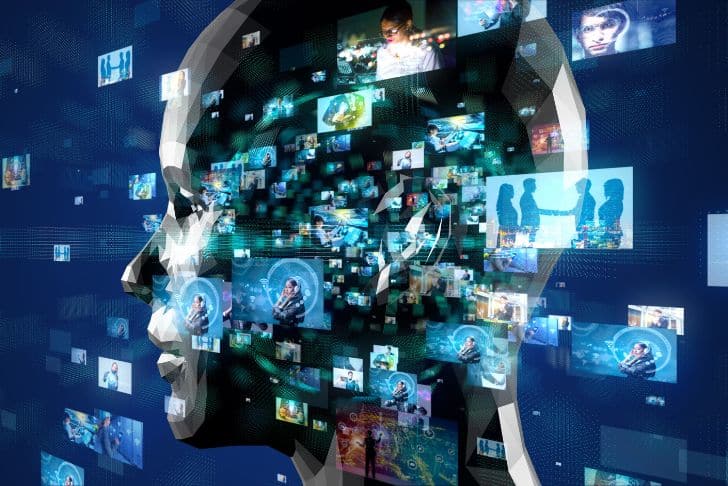Get ready to immerse yourself into the fascinating world of Artificial Intelligence (AI). This is an era where computer software mimics human activities such as learning, planning, and solving problems, impacting both personal life and numerous business sectors. With machine learning, a distinguished form of AI, businesses can swiftly process a colossal amount of data and even improve its modeling based on the information given. Its more detailed counterpart, deep learning, harnesses artificial neural networks for intricate functions, such as fraud detection and self-operating cars. AI, far from displacing human intellect, complements and augments it, excelling in tasks humans may find overwhelming, like sifting through enormous data sets and synthesizing multiple courses of action.
Embracing AI in today’s tech-savvy society could lead to exciting improvements across diverse sectors, from autonomous vehicles to customized dining experiences and interactive environments. It’s vital to remember, though, while on this journey with AI: it’s here to assist, not replace, us.

Understanding AI and Deep Learning
Defining Artificial Intelligence (AI) and its relevance
Artificial Intelligence (AI) has become a common term in both personal and professional scenarios. At its core, AI involves computer software that is designed to carry out tasks simulating human intellect such as learning, planning, reasoning and problem-solving. This ground-breaking technology has demonstrated remarkable relevance, enabling systems to automate and expedite routine tasks, and provide a basis for innovative solutions and improvements across various domains.
Elucidating Machine Learning and its importance in business
A fundamental branch of AI is Machine Learning (ML). This technology empowers computer systems to learn from data input and progressively improve performance on specific tasks. An obvious strength of ML is its capacity to process enormous volumes of data swiftly. The more data you feed these models, the more intricate and precise their predictions and insights become. It is particularly handy in making sense of data compiled by connected devices.
As businesses continue to create and collect more complex data, implementing ML solutions has become a strategic move. Gaining actionable insights from this data aids companies in making informed decisions, foreseeing market trends, and providing superior customer experiences.
Illustrating Deep Learning and its intricate functionalities
Deep Learning takes machine learning a step further by using artificial neural networks, inspired by the human brain, to process data. This technology can analyze vast sets of data with many variables, making it ideal for complex functions like detecting fraudulent activities or managing self-driving cars.
Addressing the misconception of AI as a replacement for human intelligence
Though AI has demonstrated impressive capabilities, it is vital to remember that it is not a substitute for human intellect. Instead, it is a tool that can supplement human intelligence by executing tasks faster and more efficiently, analyzing gigantic amounts of data, and creating varied courses for decision-making. AI is intended to augment, not replace, human brainpower.
Present Applications of AI
AI in Cybersecurity: risks and mitigations
In this digital age, cybersecurity is a growing concern. AI can provide proactive defense measures by identifying patterns or anomalies that could indicate a breach. Nevertheless, it also poses risks as malicious actors could use AI for harmful purposes, reinforcing the need for robust protective measures.
AI’s role in Customer Relationship Management
AI is revolutionising customer relationship management (CRM) by providing personalized customer interactions based on predictive analytics. It can track customer behaviors, preferences, and interactions, allowing businesses to optimize their strategies and engage effectively with individuals.
AI and its contribution in internet searches
AI plays an indispensable role in modern internet searches. Search engines use it to understand and anticipate user queries better, deliver personalized recommendations, and even anticipate needs before they’re explicitly stated.
Leveraging AI for personal assistants
AI-powered personal assistants like Siri, Alexa, and Google Assistant have changed our interaction with technology, adding convenience to our daily routines and allowing users to automate tasks through simple voice commands.
Examining practical uses of machine learning in business
Machine learning provides businesses with valuable insights and helps automate tasks. Beneficial applications include predicting customer churn, automating data entry, detecting fraud, providing product recommendations, and ensuring efficient project management.
The Future of AI
Exploring forthcoming advancements encouraged by AI
AI is set to revolutionize almost every aspect of our lives. Advancements are expected across numerous sectors, fostering innovation and evolution.
The role of AI in transformation of transportation
AI will play a major part in transforming transportation through autonomous, driverless vehicles, reducing accidents caused by human error and optimizing traffic flow.
How AI can revolutionize the dining experiences
Imagine a restaurant where AI systems predict your preferred meal based on past orders and even suggest new dishes you might like. This future dining experience would not only be swift but also highly personalized.
The potential of AI to create interactive environments
AI holds potential to replace two-dimensional displays with immersive, interactive environments. Think virtual reality settings where AI algorithms can enhance the user experience by adjusting the environment in real-time based on user behavior.
Driving Rationale of AI
Understanding the importance of fast processors for AI’s success
AI systems need to process incredible volumes of data at high speeds. Fast processors enable them to carry out complex computations within minimalistic timelines, making AI more efficient and effective.
Exploring the need for clean data for effective AI operations
Clean and quality data is vital for AI. Systems learn and predict based on the data they receive. Hence, feeding consistent, precise and reliable data can yield accurate predictions and outcomes.

AI and Personal Scenarios
Analysing everyday use of AI
From recommendation engines on online platforms to navigation apps on our phones, AI is interweaved into our daily lives, often without us even noticing.
Potential enhancements of personal life through AI
AI can simplify routine tasks, remind you of important appointments, or even track and interpret your health metrics. The technology aims to support and augment human lives, making daily routines easier and more efficient.
How AI can augment personal decision-making process
AI can help in personal decision-making by providing real-time information and insights. Be it financial planning or choosing the best healthcare plan, AI can provide personalized recommendations based on individual needs and goals.
AI’s role in personal security systems
AI has improved home security with smart systems that can identify, alert, and even communicate with intruders. AI-powered facial recognition and automatic alarm systems ensure a safe and secure environment for your personal spaces.
AI in Various Industries
Role of AI in Healthcare
AI in healthcare is driving improvements in patient care, diagnosis, and treatment. AI-powered tools can predict disease outbreaks, assist in surgical procedures, and help manage patient data.
Influence of AI in Agriculture
AI can optimize farming methods, enhancing crop yield and sustainability. AI-powered drones, predictive analytics for weather and soil conditions, or automated irrigation systems exemplify how AI can reshape the agriculture industry.
How AI is transforming the Education sector
AI can provide personalized learning experiences, help teachers with administrative tasks, and even predict future learning patterns and potential knowledge gaps in students.
Effect of AI in the Entertainment industry
AI assists in creating content, recommending personalized entertainment options, and even predicting potential hit movies or songs based on public sentiment and trends.

AI and Business Insights
Utility of AI in forecasting business trends
AI’s predictive analytics can help forecast market trends and customer behavior, helping businesses stay ahead of the curve.
Enhancing decision-making with AI
AI can analyze vast amounts of data to provide actionable insights and potential scenarios, enhancing decision-making and strategic planning in businesses.
Improving efficiency and productivity with AI in businesses
AI can automate routine tasks, freeing up employees to focus on more complex and strategic tasks, thereby raising overall productivity.
How AI can help in business expansion
AI can target potential markets, forecast sales, and consider various factors influencing business dynamics, providing insights that can fuel expansion and growth strategies.
Upholding Security with AI
Using AI in fraud detection
AI can identify unusual patterns and transactions, providing a powerful tool in preventing financial fraud.
Enhancing cybersecurity infrastructure through AI
AI can quickly detect and respond to digital threats, enhancing cybersecurity protocols and infrastructure.
Protecting personal data with AI
AI can ensure the secure storage and handling of personal data, preserving individual privacy and trust.
The potential of AI in ambit of global security
In a broader perspective, AI can even contribute to global security. From detecting intrusions at borders to tracking cyber-terrorism, AI is seemingly boundless in its applications.
AI Ethics and Regulations
Understanding the ethical implications of AI
As AI progresses, understanding its ethical implications is crucial. These include considerations around privacy, autonomy, transparency, and accountability.
Regulatory frameworks governing AI
As with any powerful technology, AI should operate under an appropriate regulatory framework. These regulations seek to protect user privacy, dictate the application boundaries of AI, and ensure the technology’s ethical use.
Exploring the prospects of policy making concerning AI
Policy making in AI is a dynamic and evolving area. As AI continues to develop, so should the policies governing its use.
Balancing human rights with AI advancements
While AI has the power to transform lives in positive ways, it is also crucial to ensure that these advancements don’t infringe upon human rights and dignity. Maintaining this balance is an ongoing challenge.
Challenges and Solutions in Implementing AI
Potential challenges in embracing AI
Adopting AI isn’t a simple task. It can be mired with technical difficulties, inadequate data management, and complex integration with existing systems. Additionally, there can be resistance from employees, and costly implementation.
Addressing fears and misconceptions about AI
There are several misconceptions about AI, with people often seeing it as a threat rather than a tool. Education and transparency about what AI is capable of – and more importantly, what it’s not – can help to address these fears.
Solutions to overcome challenges in AI implementation
A combination of strong leadership, detailed planning, employee training, and expert support can help in overcoming challenges in AI implementation.
Proactive preparation for a future marked by AI
To embrace a future dictated by AI, one needs to stay informed, be adaptable, and engage in continuous learning. It’s about being prepared for the AI-centric world that lies ahead, a world where human and machine can coexist and mutually prosper.
